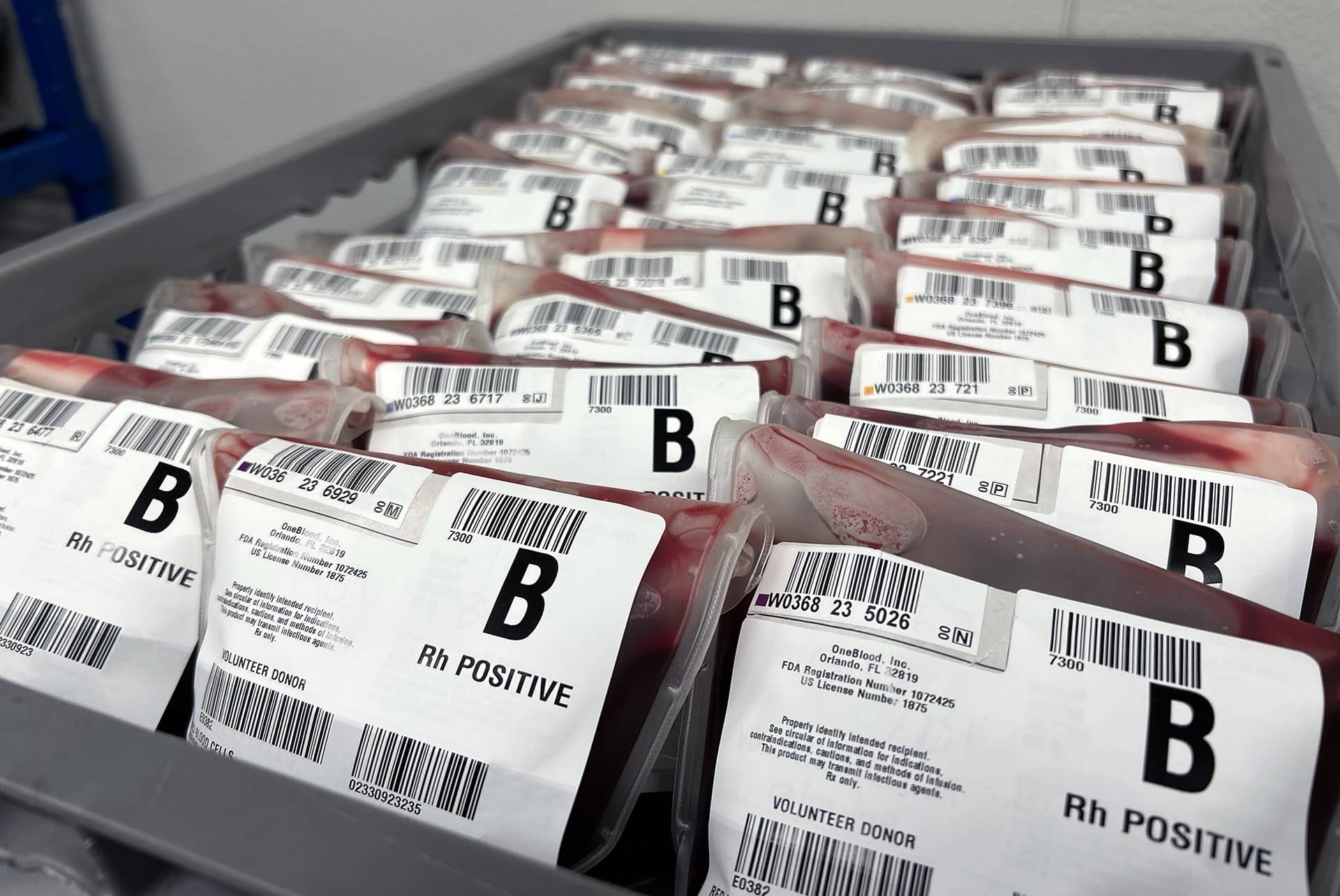
Blood type B positive is a fascinating aspect of human biology that holds numerous intriguing facts. From its unique characteristics to its impact on health, understanding this blood type can provide valuable insights into the human body. In this article, we will delve into 29 captivating facts about blood type B positive, shedding light on its prevalence, compatibility, and potential health considerations. Whether you possess this blood type or are simply curious about the intricacies of human biology, these facts will offer a comprehensive and engaging exploration of blood type B positive. So, let's embark on a journey to unravel the mysteries and wonders of this blood type, uncovering valuable information that may surprise and enlighten you along the way.
Key Takeaways:
- Blood Type B Positive is known for flexibility, creativity, and a higher risk of certain health conditions. It’s prevalent in specific regions and encourages a balanced lifestyle for overall well-being.
- Individuals with Blood Type B Positive should consider personalized healthcare guidance and maintain a balanced diet and lifestyle. They are encouraged to engage in activities that promote mental and physical well-being.
Blood Type B Positive: 29 Fascinating Facts
Blood Type B Positive is one of the several blood types that exist within the ABO blood group system. Here are 29 intriguing facts about this blood type:
Blood Type B Positive is the third most common blood type in the United States.
With approximately 9% of the population possessing this blood type, it falls behind O Positive and A Positive in prevalence.
People with Blood Type B Positive are known for their flexibility and adaptability.
This blood type is often associated with a balanced personality and a strong immune system.
Blood Type B Positive individuals are said to be more susceptible to certain autoimmune diseases.
Research suggests that individuals with this blood type may have a higher risk of developing autoimmune conditions such as multiple sclerosis and lupus.
Blood Type B Positive is prevalent in regions such as Asia and parts of Africa.
It is notably found in higher frequencies among certain ethnic groups, including people of Asian and African descent.
Individuals with Blood Type B Positive are encouraged to consume dairy products in moderation.
While dairy can be included in their diet, it is recommended that they do so in moderation to maintain optimal health.
Blood Type B Positive individuals are believed to have a higher tolerance for dairy products.
This blood type is associated with a genetic predisposition for better tolerance of dairy compared to some other blood types.
People with Blood Type B Positive may have a higher risk of developing pancreatic cancer.
Studies have suggested a potential link between Blood Type B and an increased risk of pancreatic cancer.
Blood Type B Positive individuals are advised to engage in activities that promote mental clarity.
Engaging in activities such as yoga and meditation can be beneficial for individuals with this blood type, promoting mental well-being.
Blood Type B Positive is characterized by the presence of B antigens and the absence of Rh factor.
Individuals with this blood type have B antigens on the surface of their red blood cells and do not have the Rh factor, also known as the D antigen.
Blood Type B Positive individuals are often described as creative and passionate.
They are believed to possess a creative and passionate nature, with a tendency to approach tasks with enthusiasm and innovation.
People with Blood Type B Positive may have a higher risk of developing heart disease.
Research has indicated a potential association between Blood Type B and an increased risk of cardiovascular issues.
Blood Type B Positive is compatible for transfusions with Blood Types B Positive and AB Positive.
In emergency situations, individuals with Blood Type B Positive can receive transfusions from donors with the same blood type or from those with AB Positive blood.
Blood Type B Positive is less common among the global population.
While it is prevalent in certain regions, Blood Type B Positive is less common on a global scale compared to other blood types.
Individuals with Blood Type B Positive may have a higher risk of developing blood clots.
Research has suggested a potential link between Blood Type B and an increased risk of blood clot formation.
Blood Type B Positive individuals are encouraged to engage in physical activities that promote balance and agility.
Activities such as martial arts and tai chi can be beneficial for individuals with this blood type, promoting physical well-being.
Blood Type B Positive is associated with certain personality traits.
People with this blood type are often described as independent, creative, and adaptable, with a tendency to approach challenges with a flexible mindset.
Individuals with Blood Type B Positive may have a higher risk of developing memory-related conditions.
Research has indicated a potential association between Blood Type B and an increased risk of cognitive issues.
Blood Type B Positive individuals are advised to maintain a balanced diet.
A balanced diet that includes a variety of foods can support the overall well-being of individuals with Blood Type B Positive.
Blood Type B Positive is inherited from parents.
The blood type of an individual is determined by the combination of blood type genes inherited from their parents.
People with Blood Type B Positive may have a higher risk of developing certain infections.
Research has suggested a potential link between Blood Type B and an increased susceptibility to certain infections.
Blood Type B Positive individuals are encouraged to manage stress effectively.
Practicing stress management techniques can be beneficial for individuals with this blood type, promoting emotional well-being.
Blood Type B Positive is associated with a lower risk of developing certain types of cancer.
Research has indicated a potential association between Blood Type B and a reduced risk of certain types of cancer.
Individuals with Blood Type B Positive may have a higher risk of developing autoimmune thyroid diseases.
Research suggests that individuals with this blood type may have a higher risk of developing autoimmune thyroid conditions.
Blood Type B Positive individuals are advised to maintain a healthy lifestyle.
Engaging in regular physical activity and consuming a balanced diet can support the overall health of individuals with Blood Type B Positive.
Blood Type B Positive is associated with a lower risk of developing certain gastrointestinal conditions.
Research has indicated a potential association between Blood Type B and a reduced risk of certain gastrointestinal issues.
Individuals with Blood Type B Positive may have a higher risk of developing certain skin conditions.
Research has suggested a potential link between Blood Type B and an increased risk of certain skin-related issues.
Blood Type B Positive individuals are encouraged to seek personalized healthcare guidance.
Considering the potential health implications associated with this blood type, seeking personalized healthcare advice can be beneficial for individuals with Blood Type B Positive.
Blood Type B Positive is an integral part of the diverse human blood group system.
Understanding the characteristics and potential health considerations associated with Blood Type B Positive contributes to the broader knowledge of human blood types and their significance in healthcare.
Blood Type B Positive is a fascinating aspect of human biology, encompassing unique characteristics and potential health considerations. From its prevalence in specific regions to its association with certain health risks and personality traits, this blood type holds a significant place within the ABO blood group system. Understanding the nuances of Blood Type B Positive can provide valuable insights into personalized healthcare and the diverse nature of human biology.
Conclusion
In conclusion, understanding the unique characteristics and potential health implications of blood type B positive can empower individuals to make informed lifestyle choices. From dietary considerations to potential disease susceptibilities, the knowledge of one's blood type can offer valuable insights into personal well-being. Embracing a holistic approach that integrates this understanding with overall health management can lead to enhanced vitality and well-being. By recognizing the significance of blood type B positive, individuals can embark on a journey towards optimizing their health and well-being.
FAQs
What are the dietary recommendations for individuals with blood type B positive?
Individuals with blood type B positive are often advised to consume a varied diet that includes a balance of protein, vegetables, and certain dairy products. Foods such as lamb, mutton, fish, dairy, and green vegetables are typically recommended, while chicken, corn, peanuts, and sesame seeds are best avoided.
Are there specific health risks associated with blood type B positive?
While blood type B positive individuals may have a lower risk of certain conditions, such as pancreatic cancer, they may be more susceptible to autoimmune diseases and inflammation-related issues. Understanding these potential health risks can aid in proactive health management and preventive measures.
Was this page helpful?
Our commitment to delivering trustworthy and engaging content is at the heart of what we do. Each fact on our site is contributed by real users like you, bringing a wealth of diverse insights and information. To ensure the highest standards of accuracy and reliability, our dedicated editors meticulously review each submission. This process guarantees that the facts we share are not only fascinating but also credible. Trust in our commitment to quality and authenticity as you explore and learn with us.


